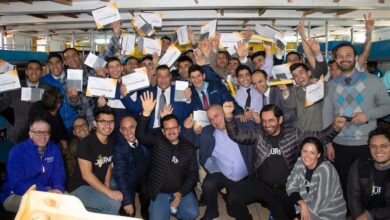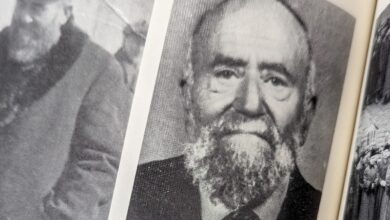Palestinian leaders are being accused of stooping to a new low, this time over their criticism of Israel’s plans to make a biblical sight handicap accessible with wheelchair ramps and an elevator.
The Cave of the Patriarchs is traditionally one of the oldest religious sites in Judaism. Archaeologists and biblical scholars believe it to be the site where Abraham bought land so that he could bury his wife, Sarah. It is also considered the location of Abraham’s tomb, as well as his son and grandson, Jacob. In addition to Sarah, the matriarchs Rebecca and Leah are also thought to be buried there.
Israeli officials had announced plans to make the Cave of the Patriarchs in Samaria accessible for disabled people on wheelchairs by installing a ramp and elevator. They even reached out to make it a collaborative effort with Palestinian authorities before being rebuffed.
The Palestinian Authority (PA), already feeling isolated by Arab nations lining up to sign peace accords with Israel, called the move “Judaization.” Supreme Sharia Judge Mahmoud Al-Habbash threatened that such “aggression” will “have a cost,” warning that “the Palestinians are prepared to do anything” while describing Israel’s activities at the Cave as “tantamount to igniting a religious war in the region and in the world.”
The comments have left many, including Palestinian supporters within the Arab world, scratching their heads. Many say it is another example of Palestinian leaders looking for any opportunity to continue conflict with Israel even as major Arab leaders say they’re done with the PA’s inability to seek peace.
The upgrades on the Cave of the Patriarchs were approved in May. The holy site is currently only accessible to Jews, Muslims and Christians through a long set of stairs.
Palestinian Media Watch (PMW) quoted a report by the PA’s official WAFA news agency in August quoting Al-Habbash as saying that the “oppressive decision” is “a strengthening of the Israeli aggression and a continuation of the provocation of the Muslims’ sensibilities.”
Al-Habbash threatened that Israel will “bear the consequences of this continued arrogant behavior, and that aggression towards our holy sites will have a cost.”
He ramped up the rhetoric to even include the possibility of resumption of terrorist attacks on Israeli citizens saying that Palestinians are “prepared to do anything” to “protect our religion and holy sites and defend them – regardless of the cost, and regardless of the sacrifices.”
“This will have severe consequences and is tantamount to igniting a religious war in the region and in the world,” he warned.
Al-Habbash claims the site of the patriarchs is off limits to anyone “who is not Muslim.” He did not explain how making it wheelchair accessible violated any Muslim laws.
Palestinian Minister of Foreign Affairs Riyad Al-Malki called Israel’s improvement of conditions at a “war crime.”
Al-Malki also called on UNESCO to inspect “the deliberate Israeli destruction of the values of world art, heritage, and culture of the Palestinian sites.” He urged the International Criminal Court (ICC) to “hurry in launching a criminal investigation against the occupation’s leaders who are intentionally destroying the Palestinian heritage sites.”
Israel’s improvements of the holy site for disabled visitors prompted Ahmed Tamimi, PLO Executive Committee member and head of the PLO Department of Human Rights and Civil Society, to threaten to unleash a third intifada. He reminded Israel of “the Palestinian people’s willingness to go to the furthest extremes in order to defend its right and basic principles.”
The threats were seemingly met with a yawn by Arab leaders across the region. After the UAE announced normalization with Israel, several other Arab nations have lined up to also sign peace accords with the Jewish State, including Bahrain and even African nations including Sudan.
The Palestinian Authority walked away from peace negotiations that had offered up to $50 billion in aid from Arab nations. While Palestinian Arabs are forced to publicly condemn the peace efforts, polls show high support for it among Arab residents under Palestinian control when speaking anonymously.
–Dwight Widaman | Metro Voice








